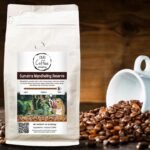If you’ve been prescribed Ozempic (semaglutide) to manage your diabetes or weight you’re likely looking for ways to enhance its effectiveness. One of the most impactful ways to do this is by understanding the foods that can interfere with its action. Knowing which foods to avoid while using Ozempic will help you achieve your desired results while minimizing side effects. In this article we’ll dive into the Ozempic foods to avoid and how they can affect your treatment.
What is Ozempic and How Does It Work?
Before we jump into the foods to avoid with Ozempic, let’s briefly discuss what Ozempic is. Ozempic is a medication used primarily for the management of type 2 diabetes and, more recently, for weight loss. It works by mimicking the effects of a hormone called GLP-1 (glucagon-like peptide-1), which helps to regulate blood sugar levels, slow gastric emptying, and reduce appetite.
However, Ozempic is most effective when combined with a balanced diet. Certain foods, unfortunately, can interfere with its ability to work properly. Understanding what these foods are will help you get the most out of your treatment.
Ozempic Foods to Avoid for Optimal Results
1. High-Sugar Foods and Sweets
When you’re on Ozempic, one of the most important dietary changes to make is cutting back on high-sugar foods. These foods can spike your blood sugar levels, counteracting the effects of Ozempic. Items like candies, sugary snacks, sweetened beverages, and pastries should be avoided.
Why to Avoid: Foods that are high in sugar can quickly increase your blood glucose levels, making it harder for Ozempic to keep your blood sugar stable. Plus, high-sugar snacks can lead to weight gain, which can undermine the effectiveness of Ozempic, especially for those using it for weight management.
What to Eat Instead: Opt for low-sugar snacks like fresh fruits, nuts, and whole-grain products that provide more nutrients and fiber.
2. Processed Carbohydrates
Processed carbohydrates, like white bread, pasta, and many breakfast cereals, are another group of foods to avoid while on Ozempic. These foods are high on the glycemic index, meaning they cause rapid spikes in blood sugar.
Why to Avoid: They can disrupt your body’s ability to regulate glucose, making it difficult for Ozempic to work effectively. Additionally, processed carbs offer little nutritional value and can contribute to weight gain.
What to Eat Instead: Choose whole grains such as quinoa, brown rice, and whole wheat pasta. These options are high in fiber and help maintain stable blood sugar levels.
3. Fried and Greasy Foods
Fried foods like French fries, fried chicken, and chips may seem tempting, but they can interfere with the absorption of Ozempic. These foods are often high in unhealthy fats and calories, making them unsuitable for anyone on a weight-loss journey or managing diabetes.
Why to Avoid: Consuming too much unhealthy fat can slow down digestion, cause insulin resistance, and promote weight gain, all of which can make Ozempic less effective.
What to Eat Instead: Opt for grilled, baked, or steamed foods. Lean proteins such as chicken, turkey, and fish are excellent alternatives to fried foods.
4. Alcohol
While moderate alcohol consumption can be part of a healthy diet for some individuals, when you’re on Ozempic, it’s important to limit alcohol intake. Alcohol can interfere with your blood sugar levels and increase the risk of hypoglycemia (low blood sugar), especially when taken alongside medications like Ozempic.
Why to Avoid: Alcohol can alter the effectiveness of Ozempic, causing unpredictable blood sugar levels. Additionally, alcoholic drinks are often packed with empty calories, which can hinder your weight loss efforts.
What to Drink Instead: If you choose to drink, opt for low-calorie, low-sugar drinks like light beer or dry wine, and be mindful of your portions.
5. Full-Fat Dairy Products
Full-fat dairy products, such as whole milk, cream, and full-fat cheeses, should also be consumed in moderation while on Ozempic.
Why to Avoid: High-fat dairy products can exacerbate insulin resistance and make it harder for Ozempic to keep your blood sugar levels under control.
What to Eat Instead: Choose low-fat or fat-free dairy options like skim milk, yogurt, and reduced-fat cheese. These options provide calcium without the added fat content.

6. High-Sodium Foods
Foods high in sodium, such as processed meats, canned soups, and salty snacks, can cause fluid retention and high blood pressure. This is particularly concerning for individuals managing diabetes or weight on Ozempic.
Why to Avoid: Sodium can cause your body to retain excess water, leading to bloating and potentially raising your blood pressure. For those on Ozempic, managing blood pressure is crucial for overall health.
What to Eat Instead: Opt for fresh, whole foods like vegetables, lean meats, and fruits. Using herbs and spices to flavor your food is a great alternative to salt.
7. Sugary Beverages
Sugary drinks like sodas, fruit juices, and energy drinks should be strictly avoided. They are a major source of empty calories and can lead to rapid spikes in blood sugar.
Why to Avoid: Sugary beverages provide little to no nutritional value and can cause blood sugar imbalances. Ozempic works best when blood sugar levels remain stable.
What to Drink Instead: Water is always the best option. If you prefer flavored drinks, try unsweetened herbal teas or sparkling water.
Read More: KFC Pizza
8. Artificial Sweeteners
Although artificial sweeteners are often marketed as a healthier alternative to sugar, they may still pose risks when combined with Ozempic. Research suggests that consuming artificial sweeteners can negatively impact gut health, which is important for overall wellness.
Why to Avoid: Some studies have linked artificial sweeteners to an increase in appetite and cravings, which can sabotage weight loss efforts while using Ozempic.
What to Use Instead: Natural sweeteners like stevia or monk fruit can be used in moderation as they have minimal impact on blood sugar levels.
Final Thoughts on Ozempic Foods to Avoid
When managing your health with Ozempic, being mindful of the foods you eat is essential to maximizing the medication’s benefits. While Ozempic can effectively help with blood sugar control and weight management, certain foods can interfere with its action, making it harder to reach your desired results.
While Ozempic can be an effective treatment for managing diabetes and supporting weight loss, it’s important to be mindful of the foods you consume. By avoiding sugar foods, processed carbs, fried items, alcohol, full-fat dairy, and salty snacks, you can enhance the effectiveness of your medication and support your overall health goals.
Additionally, steering clear of full-fat dairy, sodium foods, and artificial sweeteners will also contribute to better health outcomes. By making healthier food choices, such as opting for whole grains, lean proteins, fresh fruits and vegetables, and low-fat dairy, you create an environment that supports the effectiveness of Ozempic.










